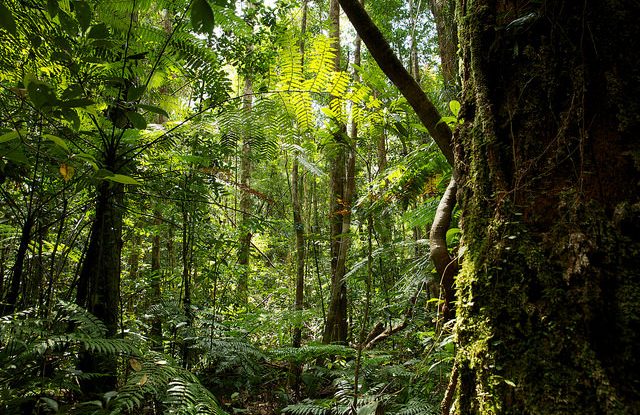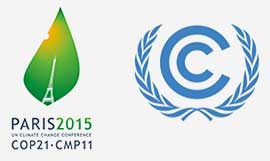The 46th sessions of the UN Climate Convention Subsidiary Body for Implementation (SBI 46) and Subsidiary Body for Scientific and Technological Advice (SBSTA 46), as well as the third part of the first session of the Ad Hoc Working Group on the Paris Agreement (APA 1-3) is taking place from 8-18 May in Bonn, Germany.
Through these negotiation streams, all countries (including the U.S.) are getting down to business to negotiate the rule book to implement the Paris Agreement (PA), much of which relate to forests and land.
Negotiations to watch on these topics include the following:
SBSTA AGENDA ITEM 10- ARTICLE 6 OF THE PARIS AGREEMENT
This agenda item is made up of three issues: (1) Markets; (2) the Sustainable Development Mechanism (SDM); and (3) Non-markets.
The markets negotiations are, of course, of direct relevance to REDD+ and offsetting. It is due to the lack of the emergence of a carbon market that has hindered the progress of REDD+. There is currently a deep divide among countries as to whether carbon trading and offsetting will be permitted under the Paris Agreement. Many parties are seeking to focus more on increasing ambition to reduce emissions rather than on offsetting.
The SDM is also linked to the markets discussion, but it is more focused on the mechanism that will take over from the CDM, if that happens. Some countries are asking for this to be a continuation of the CDM, while others disagree.
During the first day of the SBSTA meeting in Bonn, many parties put an emphasis on understanding the meaning of ‘environmental integrity’, which was included in this section of the PA.
The non-markets topic is where the joint mitigation adaptation item comes into the discussion and also relates to REDD+, mostly in terms of the early phases of REDD+ and mitigation adaptation synergies. Many parties supported the idea of spending time focusing on the identification of linkages and synergies.
SBSTA AGENDA ITEM 5- ISSUES RELATED TO AGRICULTURE
These negotiations have been very slow-moving, and have largely been in a deadlock with several workshops and submissions processes over the past few of years. There are now serious moves here in Bonn to break this deadlock and establish a work program to take the issue forward.
The struggle has been finding the balance between adaptation and mitigation, with issues being pursued around soil carbon sequestration and market solutions proving to be highly divisive.
There is a clear appetite here in Bonn to secure an outcome on the subject, with most agreeing during the first contact group that the best way forward would be through taking small steps based upon a new text proposed by the G77.
APA AGENDA ITEM 3- FURTHER GUIDANCE ON NATIONALLY DETERMINED CONTRIBUTIONS (NDCs)
This item relates to features, information and accounting related to the NDCs. There are new negotiations related to land use accounting, which will likely impact land use accounting for both developing and developed countries.
For many years, there have been serious concerns related to land use accounting around issues such as relying on business-as-usual baselines, picking and choosing selective sectors to include, using ‘net’ accounting approaches, not showing actual emissions, and other accounting loopholes (for example, those related to bioenergy and biofuels).
Despite being a highly technical issue, the discussion is a high-level one, focused on the identification of principles of land use accounting, for example, to ensure such principles embody comparability, consistency, clarity and completeness.
AGENDA ITEM 5- ENHANCED TRANSPARENCY FRAMEWORK
The Paris Agreement established an ‘enhanced transparency framework’, which basically means the entire system of reporting, measuring, verification and assessments is under consideration, and expected to be improved.
The process was criticized leading up to this session with a closed workshop on the topic, said to be inconsistent with enhancing transparency.
The current system at the UNFCCC involves reporting processes through national communications, biennial reports and update reports, with separate processes for developed and developing countries.
These processes mostly focus on carbon, and finance to a lesser degree. There are important moves now being made to broaden these processes to include more environmental and social issues, and ensure that the new system is more inclusive of human rights, ecosystems integrity, just transition and other principles established in the preamble of the Paris Agreement.
AGENDA ITEM 6- GLOBAL STOCKTAKE (GST)
This is an important negotiation focused on identifying how to increase ambition. The global stocktake will occur every five years commencing in 2023.
As we know, current NDCs put the world on a path to around 3 degrees of warming, and the Paris Agreement goal is ‘well below 2 or 1.5 degrees’, so we still have a long way to go. This is why countries agreed in Paris not to reduce, or backslide on their NDCs.
Discussions in Bonn will focus on the inputs to the global stocktake, the process and what the outcomes of this process will be. Inputs could include submissions, national communications and biennial reports, and may be as narrow as carbon only or broader, and include social and environmental considerations.
How to secure an outcome that ensures an ongoing increase in ambition without infringing on countries’ sovereignty will be a delicate issue in the negotiations to come.
This meeting in Bonn should also make progress on the Facilitative Dialogue agreed in Paris to occur in 2018, which is also intended to ‘take stock’ of progress and inform parties on how to increase their ambition.
Clarity on the Facilitative Dialogue will be an important focus for COP23, which will be held in Bonn this November. Expectations are high for this to feature as one major outcome.
MEETING OF THE REDD+ FOCAL POINTS
The Warsaw Framework on REDD+ included a process of informal meetings to improve coordination of finance for REDD+. This process has been ongoing since 2013 and will be reviewed during 2017.
Here in Bonn, the REDD+ negotiators will come together again to discuss the future of this process and whether it should cease to exist, continue, or become a more formal process within the UNFCCC.
During the Bonn meeting, there are high expectations that the Green Climate Fund will produce its summary of the recent meeting held in Bali, Indonesia, to take the next important steps to put in place its framework to commence the delivery of long-awaited REDD+ results-based payments.
MOVING FORWARDS
As we progress towards the halfway mark, there are many moving pieces, new directions and uncertainties surrounding the development of the Paris Agreement rule book. In some ways, we are entering new territories while in other ways we are traversing old ground yet again.
To reach agreement on issues, compromises and careful negotiations are required. New research and science will also play an increasingly important role, and it has become clear that land use and forests will play a key role in the future of climate action.
We want you to share Forests News content, which is licensed under Creative Commons Attribution-NonCommercial-ShareAlike 4.0 International (CC BY-NC-SA 4.0). This means you are free to redistribute our material for non-commercial purposes. All we ask is that you give Forests News appropriate credit and link to the original Forests News content, indicate if changes were made, and distribute your contributions under the same Creative Commons license. You must notify Forests News if you repost, reprint or reuse our materials by contacting forestsnews@cifor-icraf.org.


